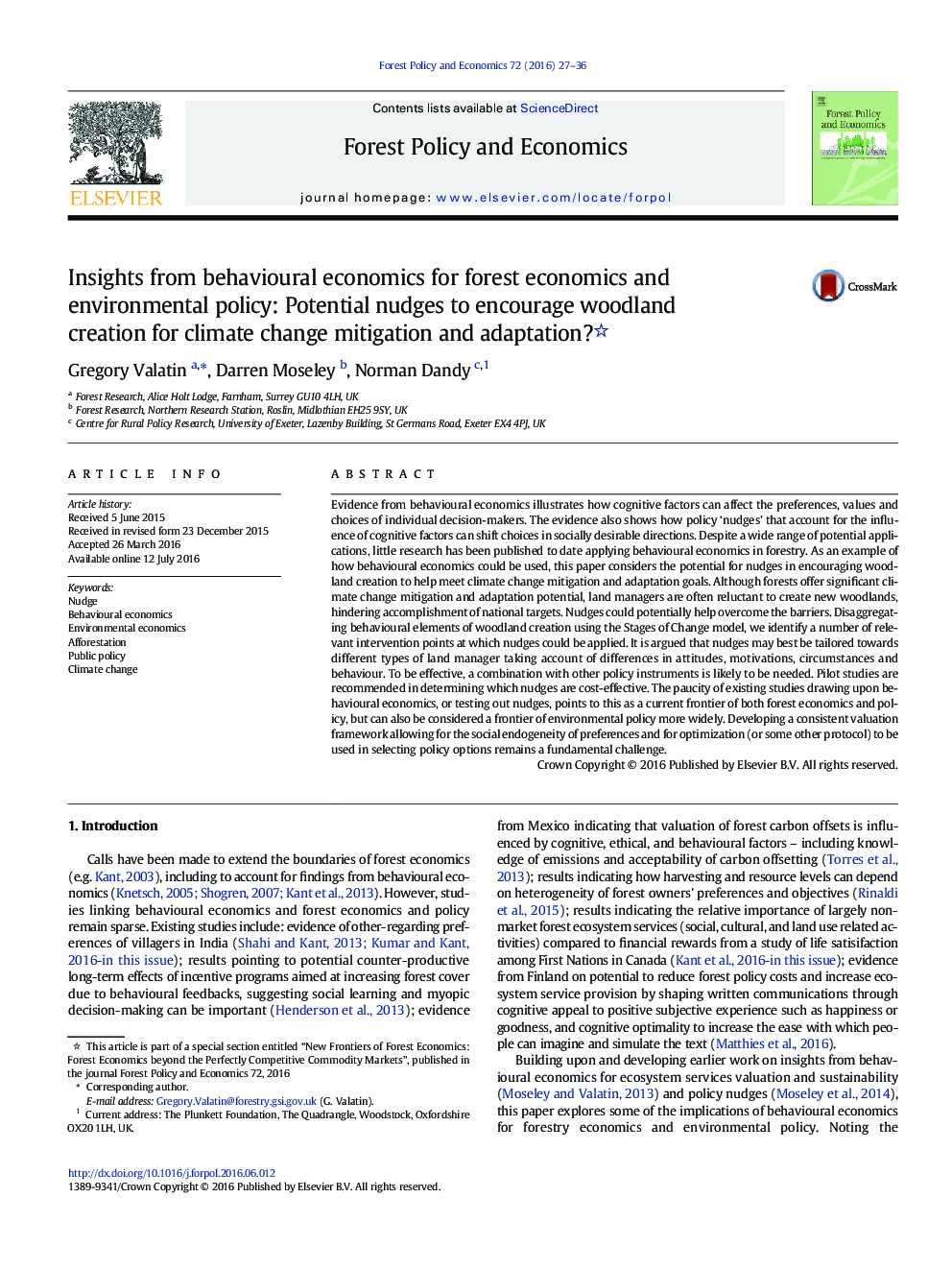| کد مقاله | کد نشریه | سال انتشار | مقاله انگلیسی | نسخه تمام متن |
|---|---|---|---|---|
| 6459878 | 1421667 | 2016 | 10 صفحه PDF | دانلود رایگان |
- Cognitive factors imply non-market values can vary by an order of magnitude.
- Influences of cognitive factors on ecosystem values pose key environmental policy challenges.
- Selecting policy options allowing for the social endogeneity of values is difficult.
- Influences of cognitive factors on choices provide opportunities for forest policy-makers.
- Nudges at key points could provide a cost-effective instrument to encourage woodland creation.
Evidence from behavioural economics illustrates how cognitive factors can affect the preferences, values and choices of individual decision-makers. The evidence also shows how policy 'nudges' that account for the influence of cognitive factors can shift choices in socially desirable directions. Despite a wide range of potential applications, little research has been published to date applying behavioural economics in forestry. As an example of how behavioural economics could be used, this paper considers the potential for nudges in encouraging woodland creation to help meet climate change mitigation and adaptation goals. Although forests offer significant climate change mitigation and adaptation potential, land managers are often reluctant to create new woodlands, hindering accomplishment of national targets. Nudges could potentially help overcome the barriers. Disaggregating behavioural elements of woodland creation using the Stages of Change model, we identify a number of relevant intervention points at which nudges could be applied. It is argued that nudges may best be tailored towards different types of land manager taking account of differences in attitudes, motivations, circumstances and behaviour. To be effective, a combination with other policy instruments is likely to be needed. Pilot studies are recommended in determining which nudges are cost-effective. The paucity of existing studies drawing upon behavioural economics, or testing out nudges, points to this as a current frontier of both forest economics and policy, but can also be considered a frontier of environmental policy more widely. Developing a consistent valuation framework allowing for the social endogeneity of preferences and for optimization (or some other protocol) to be used in selecting policy options remains a fundamental challenge.
Journal: Forest Policy and Economics - Volume 72, November 2016, Pages 27-36
